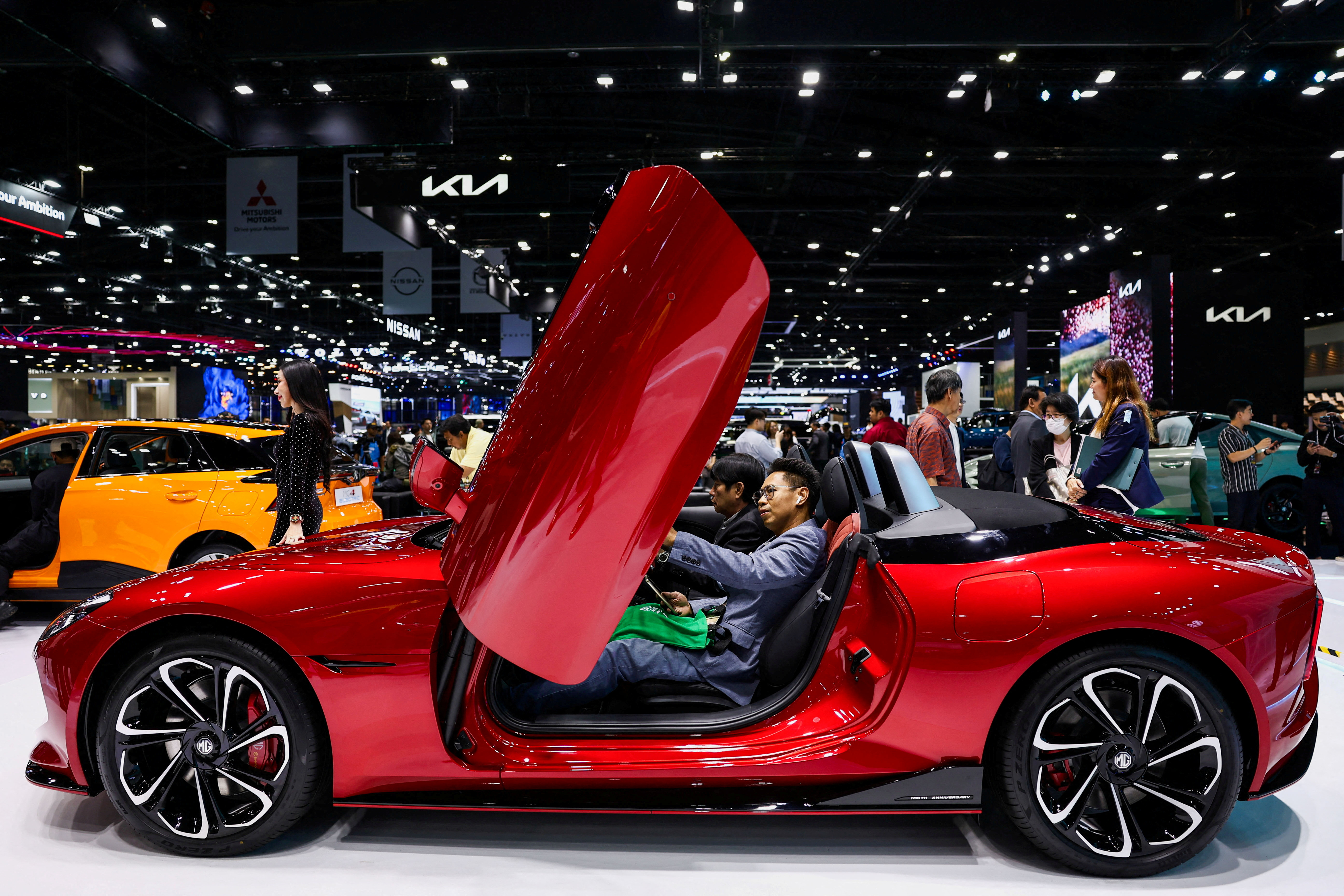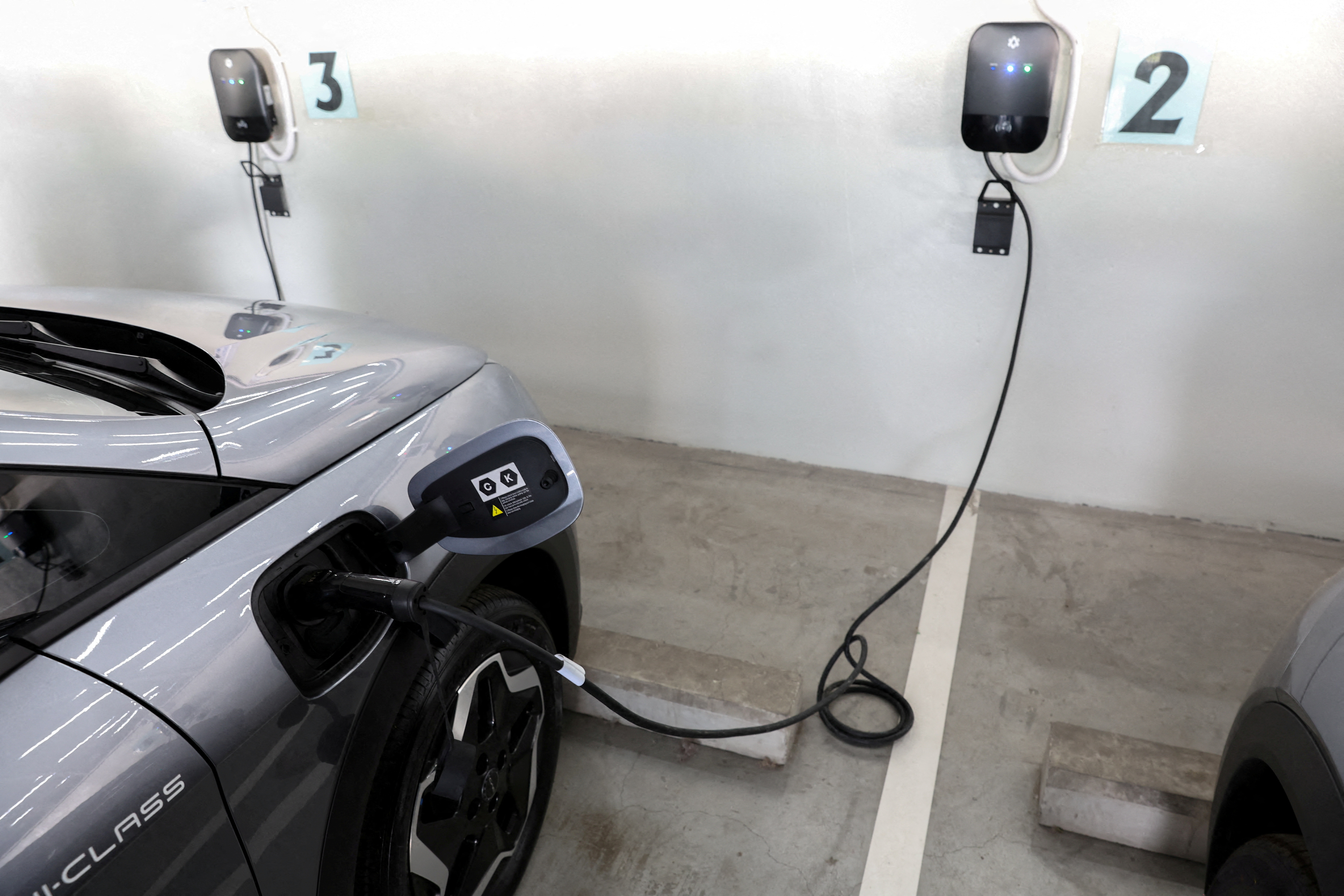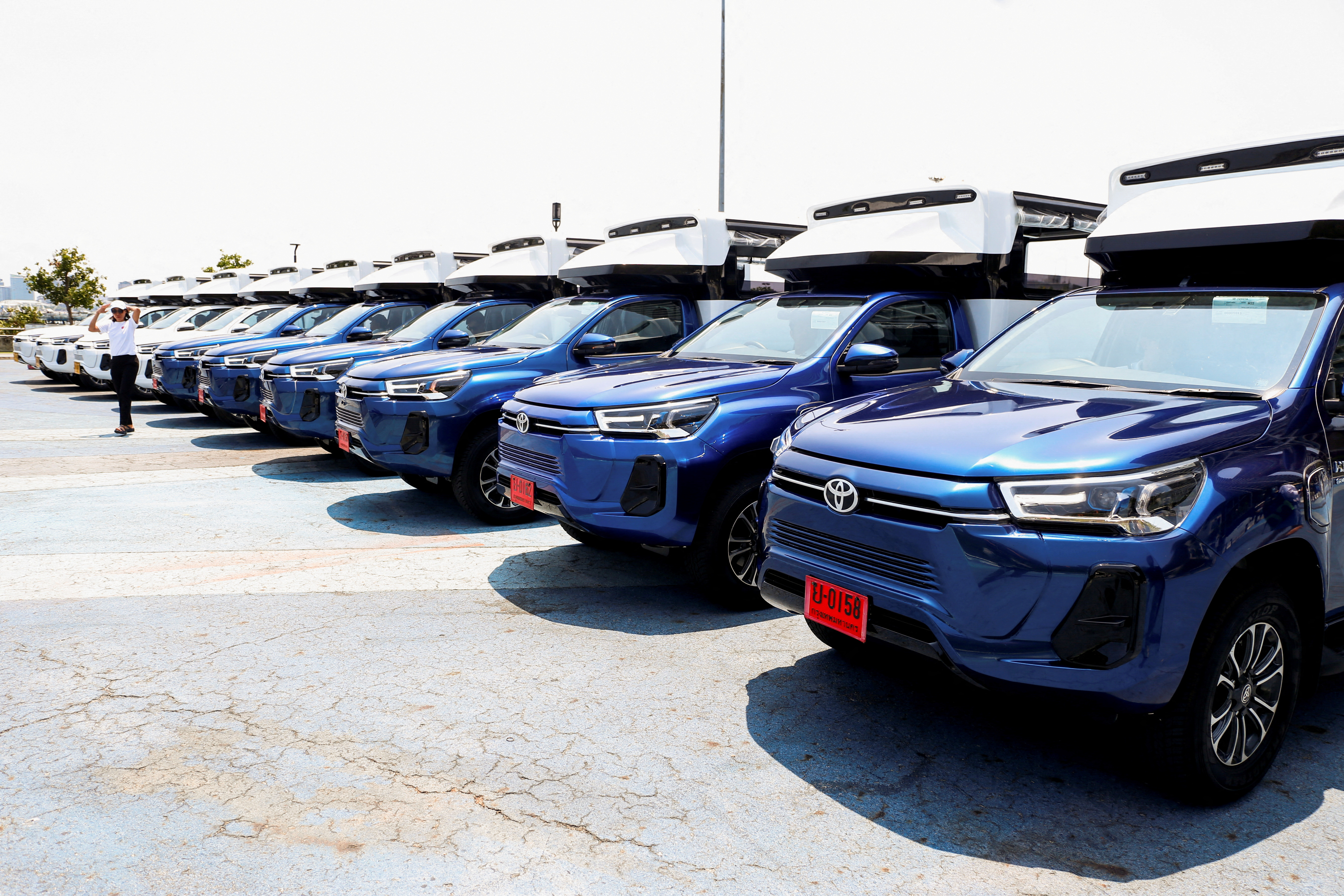Chinese Golf Carts Surging Into US Prompt Pleas for 100% Tariff
, Bloomberg News

(Bloomberg) -- The two largest golf cart producers in the US are asking for relief from an existential hazard: a flood of Chinese imports.
Club Car LLC and Textron Specialized Vehicles Inc., both based near Augusta, Georgia, asked the Biden administration this week to slap a 100% tariff on golf carts and other low-speed, often battery-powered personal vehicles made in China — putting them on par with the US tariff on regular Chinese electric automobiles.
“Chinese import volumes have rapidly increased, taking greater consumer vehicle market share while using price benefits from Chinese government subsidies to drive their advantage,” Club Car President and CEO Mark Wagner said in an emailed statement Friday. “We had to take action.”
US imports of Chinese golf carts and other recreational buggies have increased sixfold since 2020, partly because they’re shipped under a product classification where the tariff is lower than those coded as normal-sized EVs. The Chinese carts often avoid higher levies by crossing the border at the lower tariff rate and then undergoing modifications in the US, according to the American companies’ attorneys.
As a result, the golf carts and similar vehicles “are able to skirt the proposed increased duties on electric vehicles” announced by the Biden administration in May, according to a letter filed this week with the US Trade Representative in Washington.
The skirmish between the world’s largest economies is narrow, but it illustrates the scores of loopholes, workarounds, unintended consequences and legal quandaries that accompany the imposition of tariffs across a swath of the economy.
Comment Deadline
Friday was the deadline for public comment on USTR’s so-called 301 case, under which tariffs on Chinese goods are justified.
The filing from Club Car and Textron, which makes E-Z-GO and Cushman carts, was among hundreds of other pleas for either tariff protection or relief posted during USTR’s comment window. The two companies made their case jointly under a group called the American Personal Transportation Vehicle Manufacturers Coalition.
According to the filing, imports of Chinese golf carts and another tariff classification for similar products called “specially designated vehicles” totaled $916 million last year, up from $148 million in 2020.
Club Car and Textron’s competitors in China have “substantially and systematically undersold domestically produced” vehicles, “resulting in a deterioration in the domestic industry’s performance and a sharp decline in the US industry’s production, capacity utilization, shipments, employment, and financial performance in 2024,” according to the June 25 letter to USTR from the Wiley law firm in Washington.
Their outreach to USTR follows a related case filed with the US Commerce Department and the US International Trade Commission, which alleged dumping of Chinese golf carts and sought relief in the form of anti-dumping and countervailing duties.
Robert DeFrancesco, a partner in Wiley’s international trade practice, said the process in that case will take about a year.
--With assistance from Chris Miller.
©2024 Bloomberg L.P.
Chinese automakers retain grip over
Southeast Asia's booming electric car
market
By Devjyot Ghoshal



Fully-electric Toyota Hilux Revo pickup trucks as public transportation vehicles are seen in the Thai seaside town of Pattaya, Chonburi province, Thailand, April 25, 2024.
BANGKOK, June 21 (Reuters) - Electric vehicle sales are surging in Southeast Asia, led by China's BYD (002594.SZ), opens new tab and Vietnam's VinFast , eating into the internal combustion engine car market dominated by Japanese and Korean firms, Counterpoint Research said on Friday.
EV sales in the region more than doubled in the January to March quarter from a year before, according to the research firm. Sales of ICE cars, meanwhile, slid by 7%.
"As Japanese and Korean automakers, who dominate conventional vehicle sales, lag in EV adoption, Chinese OEMs (original equipment manufacturers) are stepping in to fill the gap," said Counterpoint analyst Abhik Mukherjee.
Thailand, Southeast Asia's second largest economy where Chinese car makers have committed more than $1.44 billion to set up new EV production facilities, is leading the charge.
The regional auto manufacturing hub where Japan's Toyota Motor (7203.T), opens new tab and Honda Motor (7267.T), opens new tab have a major presence accounted for 55% of all Southeast Asia's EV sales in the first quarter, with the segment growing 44% compared to last year.
"Vietnam saw an even more impressive growth, with BEV (battery electric vehicle) sales increasing by more than 400%, contributing to nearly 17% of regional sales," the research firm said.
Across the region, China's top-selling EV maker BYD maintained pole position, cornering 47% of the regional market leader, followed by Vietnam's VinFast.
BYD has had early success in Southeast Asia, which is still a small EV market compared to other regions, on the back of distribution partnerships with large local conglomerates.
U.S. electric carmaker Tesla (TSLA.O), opens new tab saw its market share in the region drop two percentage points to 4% in the first quarter, in spite of its sales growing 37% in the same period.
A number of Southeast Asian countries, including Thailand and Indonesia, have rolled out incentives to stimulate EV demand and attract new investments - a call answered by Chinese car makers locked in a bruising price competition at home.
"Southeast Asia is becoming a major expansion region for Chinese OEMs," Mukherjee said.
No comments:
Post a Comment